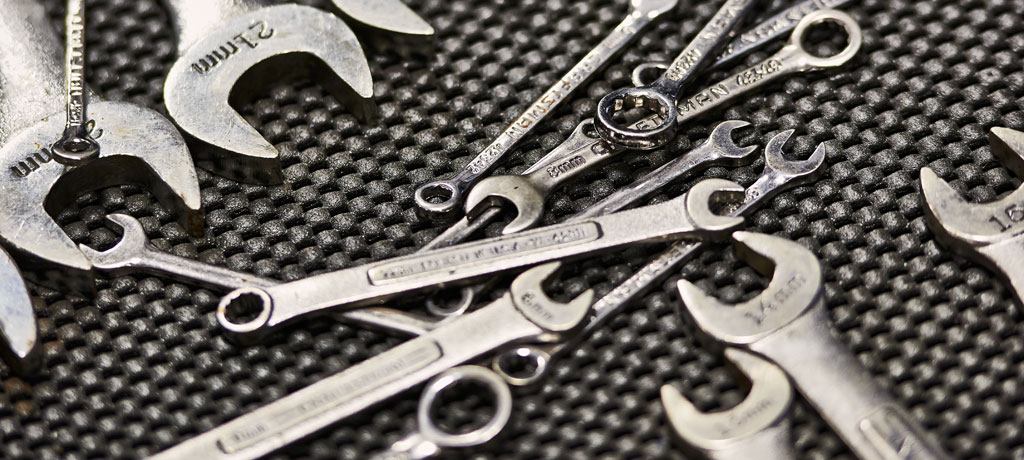You might not think of your alternator very often, but it’s vital to keeping your vehicle running. Bad alternators often lead to dead car batteries, leaving motorists stranded yearly. Having some basic knowledge of how the alternator works and what you can do to help prevent costly repairs is beneficial.
Like any part of your car, the alternator is not meant to last forever. Often, it can fail with little warning. But there are a few subtle signs that your alternator is going bad. Knowing what to watch out for can let you know when you should have your alternator checked out.
How Alternators Work
The alternator is mounted toward the front of the engine and is critical in providing power to the battery. It keeps the battery continuously charged and the car’s electrical and computer systems up and running.
The average longevity of an alternator is seven years or about 150,000 miles. Several factors can impact the lifespan of your alternator, including the quality of the part, the overall condition of the vehicle, and how many electronics are being used.
8 Signs Your Alternator Is Going Bad
Alternator failure can seem sudden. Thankfully, a few common warning signs help you understand how to tell if you need a new alternator.
Some of these indicators include:
- Difficulty starting your car: When starting the engine, if you hear a clicking noise or it takes longer for the engine to catch, an alternator inspection may be in order.
- Frequent stalling or poor performance: If your battery isn’t being replenished or the spark plugs aren’t receiving consistent electrical input, your car will stall or be sluggish when picking up speed after stopping at a red light. You may also notice that reaching your normal cruising speed takes longer than usual.
- Dimmer or brighter headlights: A failing alternator doesn’t supply a consistent current of electricity to your many vehicle components. Headlights that are dimmer or brighter than usual can indicate a problem. You may also see dimming or flashing in other lights, displays, and electronics.
- A burning electrical or rubber smell: Your alternator can overheat, and wires and belts can become worn or disconnected. These issues will eventually cause your alternator to fail.
- Dashboard warning lights turning on: A check battery light, a warning light for other electrical parts, or flickering random lights are all good indications to have your alternator inspected.
- A squealing or whining sound from your engine: Every engine has its particular quirks and sounds, but if your car is “growling” at you after starting up, the alternator belt may be malfunctioning.
- Intermittent malfunctioning with your car’s electronics: If you notice your windows moving slowly up or down, malfunctions with your audio system, or other electronic frustrations, the electrical current from your alternator is likely at fault. If you notice an isolated problem with a single electronic, ask your mechanic to check that part and the alternator for signs it is going bad.
- Having to jump or recharge your battery unexpectedly: Leaving your headlights or interior lights on can require a battery jump. But if you have to jump-start or charge your battery without an apparent cause, consider the component’s age and the alternator’s health as possible causes.
If you notice any of these warning signs, it’s wise to get the vehicle inspected by your local Meineke technician. You will want to have the problem addressed right away. Once an alternator begins to fail, you risk your car stopping unexpectedly while driving or causing damage to other electrical components.
If you do need to replace the alternator, try to spring for a new one—not a remanufactured part.
7 Ways to Maintain Your Alternator
Along with watching out for any red flags, there are also some things you can do to preserve the integrity of your alternator to help keep it fully functional for as long as possible.
Some general alternator maintenance tips include:
- Ensure you know how to jump-start the car; an improper jump can fry the alternator.
- Improperly installing aftermarket electronics can overload the alternator, so be careful with any high-tech add-ons to the vehicle.
- Keep it clean, as a build-up of dirt and grease on the alternator can cause it to overheat and become damaged. Dirt and corrosion on the battery and alternator connections can also cause them to work harder to meet the electrical demands of your vehicle.
- Watch out for fluid leaks in the alternator; routinely inspecting the vehicle can keep you alert.
- Keep your belts in good condition. Worn or torn belts can interrupt the electrical flow or loosen the alternator mountings.
- Be cautious when making repairs near the alternator. If you are replacing a nearby belt or other component, give the mounting hardware on your alternator a once over before you close the hood. Ensure nothing has come loose that will cause unnecessary jarring or vibrations when the car is in motion.
- Consider aftermarket electronic installations carefully. They may not be rated correctly for your alternator and battery parameters.
By following these tips, you can keep your alternator working for as long as possible. However, even a good, well-cared-for alternator can have issues. It’s important to make routine auto maintenance a habit and have your trusted Meineke technician ensure the safety and performance of your vehicle.
Concerned About Your Alternator? Let Meineke Help!
Meineke is a full-service automotive center ready to help you with maintenance and repair. Visit a location near you for an alternator inspection and service.
Frequently Asked Questions
Explore these commonly asked questions to get answers about your alternator.
How Do I Know If I Have a Faulty Alternator or Battery?
- First, consider the age and condition of both parts. Is your battery beyond its expected lifespan? Does your car stay running after you get it started but often needs a jump for the initial startup? It’s likely the battery.
- If your car starts and stalls out soon after or while driving, look at your alternator with a critical eye first. You can always turn to your local Meineke mechanic for an expert inspection and honest answers.
Can You Drive a Car with a Bad Alternator?
- No. It’s risky to drive a car with a bad alternator. It can leave you stranded in inconvenient circumstances. Continuing to drive can also damage additional electrical parts of your vehicle if you fail to replace the alternator as soon as possible.
Does a Bad Alternator Drain Your Battery?
- Yes, a faulty alternator can steal power from your battery even when your car is off. This process is called a parasitic drain or draw.






